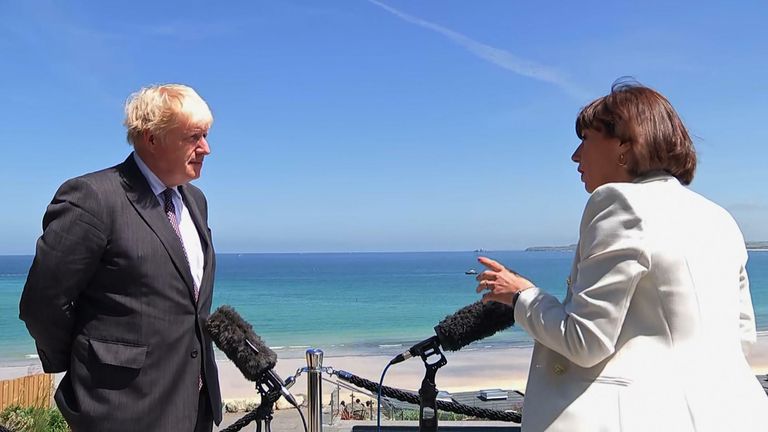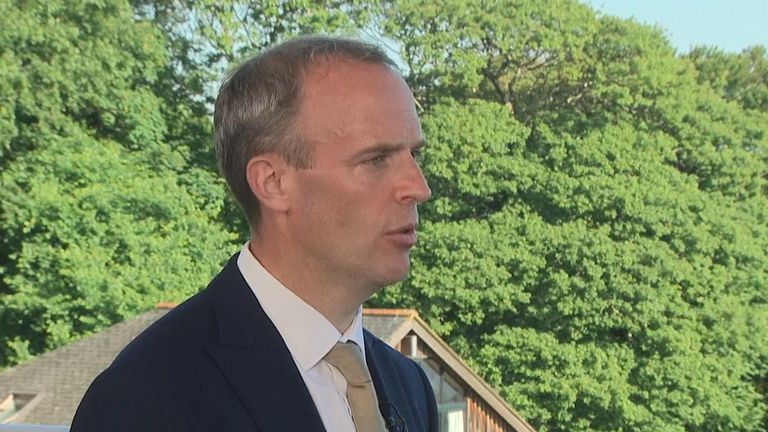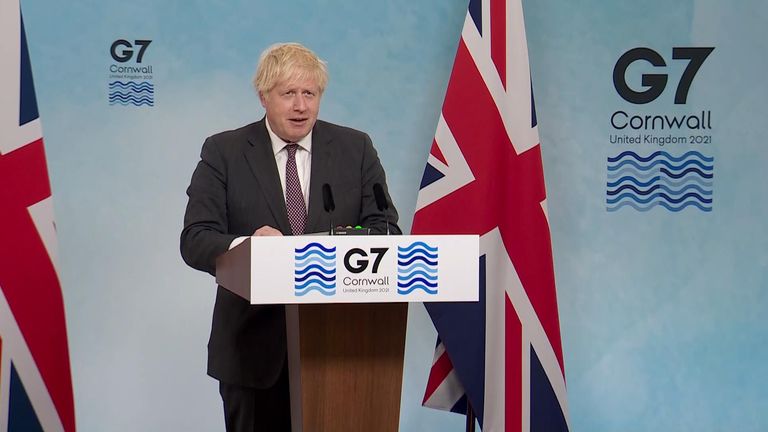An England football victory as the G7 summit wrapped up in Cornwall was something to celebrate, but even with a home advantage, Prime Minister Boris Johnson did not emerge from this global gathering with a win.
This was a big opportunity for Mr Johnson and in favourable conditions.
Serendipitous that the UK was the host nation in its year of Brexit – this the perfect setting to prove global Britain was more than just an empty slogan at a moment when western democracies wanted to turn the page on the bad tempered years of Donald Trump and make the summit work.
And yet, it became an opportunity missed – with the prime minister managing over the course of the weekend to score an own goal over Brexit.
In his closing remarks, Mr Johnson said the issue of post-Brexit trading relationships in Northern Ireland – the protocol agreed in the 2019 Withdrawal Agreement – took up a “vanishingly small” part of these global deliberations.
But it certainly loomed large in the minds of President Emmanuel Macron and other European leaders as they jetted out of Cornwall after Mr Johnson – offered an opportunity by President Biden to park the issue for the duration of this summit on Thursday – fanned the tensions.
The PM used his broadcast round to warn European leaders that he would do “whatever it takes” to protect the integrity of the UK and was prepared to invoke Article 16 of the protocol, which allows either side to take unilateral action if its implementation were to lead to “serious economic, societal or environmental difficulties”.
And he didn’t stop there; asked if he thought a trade war was coming around the corner he replied: “I think it highly unlikely.
“But if I may say so, I’ve talked to some of our friends here today who do seem to misunderstand that the UK is a single country and a single territory. I think they just need to get that into their heads.”
Sources within the UK delegation then doubled down on this overnight by claiming President Macron had told the prime minister that Great Britain and Northern Ireland were not the same country, a remark that Foreign Secretary Dominic Raab said on Sunday he found “offensive”.
A diplomatic row then that could have been avoided entirely (this weekend at least) stoked up by the UK.
President Macron left irritated, telling reporters at his closing press conference that the two sides should stop wasting time on disputes about sausages when there are bigger global issues to tackle, pointedly telling Mr Johnson: “Let’s not waste time with controversies that are created in corridors and backrooms.”
The singular ambition of this summit is to demonstrate that the world’s wealthy liberal democracies can work together – the G7 a force for good in a world beset by problems – and there was some progress on the vaccination programme, as well as pitch rolling to implement the 2009 Copenhagen commitment, which pledged to give $100bn-a-year from public and private sources to help developing countries to transition to green energy, in time for COP26 in November.
But it’s true too that the row over the implementation of the Brexit deal repeatedly disturbed this summit.
And it’s true too that these European leaders – and President Biden too – are united in their differences with Mr Johnson over the post-Brexit settlement.
The host of this summit learned that global Britain when you’re no longer part of the gang is a lonely place to be. An opportunity missed.



